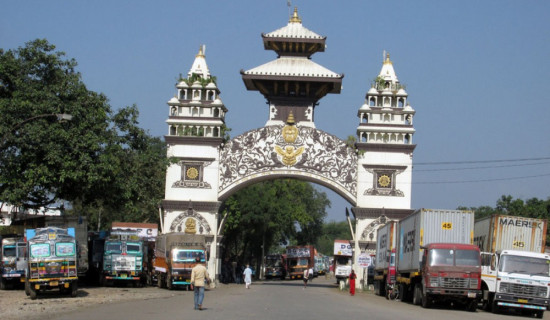- Sunday, 15 February 2026
Nepal Airlines Corporation In Need Of Reforms
The national flag carrier of Nepal, Nepal Airlines Corporation (NAC), has long been the subject of discussion and controversy in that nation. NAC has struggled to stay afloat, encountering several difficulties that have prompted many to characterize it as a "white elephant" in the aviation business despite being formed with the noble aim of encouraging tourism and linking Nepal with the rest of the globe, it has encountered many difficulties and conflicts throughout the years. It has frequently been referred to as a "white elephant" due to its inefficiencies, financial difficulties, and ongoing operational problems despite having the potential to be an important asset for the nation. This article investigates the causes of NAC's "white elephant" label as well as the problems it has faced.
Since its founding as Royal Nepal Airlines Corporation in 1958, NAC has gone by a number of different names. It has been essential in tying Nepal to the rest of the globe over the years, facilitating travel, trade, and tourism. NAC has however struggled to keep up a respectable reputation and financial stability in spite of its lengthy history. It was first renowned for its dependable services. However, it has had a number of difficulties over the years, such as political intervention, management troubles, and an aging fleet. Together, these elements are to blame for its failing finances and diminishing reputation. It has since been Nepal's main local and international airline. It has been essential in tying the nation to the outside world and facilitating domestic travel over the years. Nevertheless, despite having a long history, NAC has had to overcome many obstacles that have prevented it from reaching its full potential.
Challenges
Financial instability: NAC's ongoing financial instability is one of the main factors contributing to its reputation as a white elephant. The airline has constantly lost money, finding it difficult to turn a profit and keep going. Its financial development has been hampered by poor administration, a lack of financial transparency, and political meddling. There are concerns about the NAC fleet's age and its impact on passenger safety as well as the company's ability to operate effectively. NAC has lagged behind other airlines in investing in cutting-edge, fuel-efficient aircraft, jeopardizing both safety standards and customer pleasure. Its unwillingness to modernize its fleet has made it less competitive on the world market. In addition to inefficiency and administrative obstacles, NAC is plagued by bureaucratic inefficiency and red tape, which causes delays in operations and dissatisfied customers. The airline is unable to quickly respond to changing consumer tastes and market demands because decisions about fleet expansion, route planning, and service upgrades frequently become mired in bureaucratic red tape.
Lack of Innovation and Adaptability: Innovation and adaptability are essential in the aviation business, which is undergoing fast change. Unfortunately, NAC has been reluctant to adopt cutting-edge techniques and client-centred strategies. The airline's capacity to compete successfully has been hampered by the inadequate implementation of industry standard practices like online booking systems, customer service improvements, and digital marketing initiatives. Nepotism and Political intervention: NAC's reputation has also been tarnished by nepotism and political intervention. Politics frequently have a role in important decision-making processes and hiring decisions, which results in a lack of competence at the top of the business. Strategic planning and the airline's general orientation are subsequently impacted by this.
Way forward
The voyage of Nepal Airlines Corporation has been hampered by financial issues, operational difficulties, and a battle to live up to passenger expectations. Although the airline has a unique role in Nepal's aviation history, its "white elephant" status underscores the urgent need for thorough changes, improved management, and a more stable financial structure. Only by addressing these problems can NAC hope to shake off its bad reputation and actually provide the people of Nepal with a dependable air transportation option. Although Nepal Airlines Corporation began with a good intention, poor financial management, aging infrastructure, ineffective bureaucracy, and political intervention have hampered the company's progress. Due to these problems, the airline is now considered a "white elephant," representing a drain on the nation's resources rather than a point of pride. If NAC wants to stop being a "white elephant" and start competing in the global aviation business, it must address these issues, embrace innovation, ensure transparency, and encourage professionalism. White elephant status of Nepal Airlines Corporation is a result of years of poor management, inefficiency, and political involvement. NAC may, however, shed this stigma and transform into a successful and competitive airline that caters to both domestic and foreign travellers with the correct reforms and a willingness to change. To carry out these reforms and open the door to a better future for NAC, the government and stakeholders must collaborate.
(The author is an advocate.@attanupam)

















